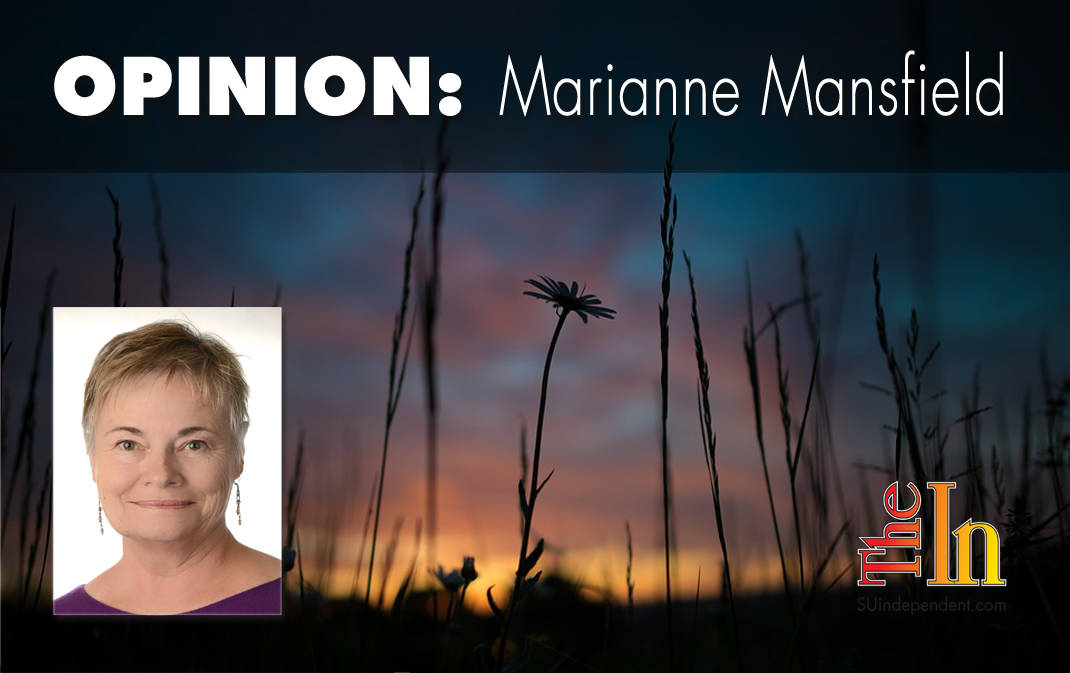 To my friends and family: Happy Easter, Chag Sameach, and Happy Ostara, depending on your persuasion. If none of these apply, then may I simply wish you a joyous spring?
To my friends and family: Happy Easter, Chag Sameach, and Happy Ostara, depending on your persuasion. If none of these apply, then may I simply wish you a joyous spring?
At this time of year, it is sorely tempting to ramble on about rebirth and new growth and all manners of “springing” into the future.
Recently, though, I was the recipient of the gently delivered yet compelling tocsin that as we head off into the future, nothing is gained if we forget to remember the past.
The bearer of this message was one Benjamin Lesser, a Holocaust survivor. He delivered his presentation in the Community Center of Sun River in St. George to a room packed with my neighbors and friends. Like his message, the man himself is the image of contrasts. He is 87, by my estimate, yet erect and with clear vision. His voice was strong and passionate, yet soft and simple. His Polish accent, with its musical lyricism, only served to underscore the horror of the stories he told.
During five years of living hell on Earth, Lesser survived several ghettos and concentration camps, including the notorious Auschwitz, Buchenwald. He was liberated in Dachau. He was 15 1/2 years old and weighed 65 pounds when freedom finally came to him.
He began his talk with the deceptively simple admonition: We must never forget. He ended it nearly 45 minutes later with the same solitary thought driven home by tales of torture and unimaginable cruelty: We must never forget.
I will attempt to paraphrase what I heard, but I confess in advance that I will do it no fair justice. For that I apologize.
Lesser talked about the hatred that burned so ferociously in the hearts of the Nazis that it consumed any sense of human decency that might have existed there once. He spoke of the hatred that drove young soldiers to commit horrific acts of torture and murder with no apparent remorse. He spoke of being surrounded by death and the dying. He spoke of catastrophic illness that claimed so many of his fellow internees. And he spoke of the smell. The smell of burning flesh.
But he also spoke of the resilience of the human spirit. He told us of making a choice to survive. Not that others didn’t, of course. That wasn’t his point. He spoke of the gritty determination of a 15-year-old boy who decided he would not to break before his torturers. He told us more than once that he wasn’t sure exactly where that relentlessness of spirit came from, but he credited it with his ultimate survival.
He spoke of the loyal, compassionate love of friends and family. He told of sharing scraps of bread with his cousin and of later holding that cousin in his arms as he died. He told of miraculously being reunited with a sister he assumed had been gassed. They had been separated early on in a concentration camp. He had believed that was the last time he had seen her alive. He found her after his liberation at the end of the war.
He told us that rather than writing a memoir of his experiences, he had chosen differently. He had chosen to write stories of the steadfastness of the human will. Although it is nearly impossible to comprehend, he told us he was not bitter. He chose a course in life that led him to come to this country, to marry, to have a family and a successful business. He chose to live by looking forward while never forgetting. At the end of his life, he has devoted himself to spreading that message. We must never forget.
That message of never forgetting rings truer today than ever. As we watch a dictator accused of gassing his fellow citizens in Syria and presidential spokesperson Sean Spicer stumbling and bumbling his way over the facts of Hitler’s war atrocities, we must never forget.
To truly appreciate the impact of spring’s message of renewal, we must place it in context of what has preceded it. As in all things human, the past informs the future. We must never forget.
Happy seasons, my friends.
By the way, I ran into Mr. Lesser later that same day at a restaurant. I waited until he finished his meal before approaching him. I told him that I truly enjoyed his talk. As the words tumbled out of my mouth, I felt myself redden. I didn’t simply enjoy his talk. I was moved beyond words by it, and yet I couldn’t express myself. I felt I was in the presence of a force of nature and I was nearly struck dumb. He took my hand and smiled at me. “Thank you for listening.” His hand was so soft, his eyes so focused.
Articles related to “Hope amidst chaos: We must never forget”
Diary of Lisa Frank describes growing up in peace-torn Michigan
How to submit an article, guest opinion piece, or letter to the editor to The Independent
Do you have something to say? Want your voice to be heard by thousands of readers? Send The Independent your letter to the editor or guest opinion piece. All submissions will be considered for publication by our editorial staff. If your letter or editorial is accepted, it will run on suindependent.com, and we’ll promote it through all of our social media channels. We may even decide to include it in our monthly print edition. Just follow our simple submission guidelines and make your voice heard:
—Submissions should be between 300 and 1,500 words.
—Submissions must be sent to editor@infowest.com as a .doc, .docx, .txt, or .rtf file.
—The subject line of the email containing your submission should read “Letter to the editor.”
—Attach your name to both the email and the document file (we don’t run anonymous letters).
—If you have a photo or image you’d like us to use and it’s in .jpg format, at least 1200 X 754 pixels large, and your intellectual property (you own the copyright), feel free to attach it as well, though we reserve the right to choose a different image.
—If you are on Twitter and would like a shout-out when your piece or letter is published, include that in your correspondence and we’ll give you a mention at the time of publication.



